

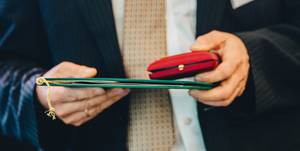
With its new Mario Markus Prize for Ludic Science, the GDCh wants to recognise a scientific work in the field of natural science that is “playful”. The term “playful” is used here to designate discoveries that arose from research that was undertaken not with any specific application in mind, but simply out of curiosity about the natural world.
More information about Ludic Science.
The work should have been published in a peer-reviewed journal in 2019 or later.
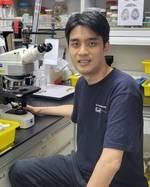
The winner Prof. Benny K. K. Chan received the Mario Markus Prize for his studies on the remarkable mobility of “in motile” turtle barnacles. In his publication "Five hundred million years to mobility: directed locomotion and its ecological function in a turtle barnacle", Benny K. K. Chan and his team playfully discovered the mobility of “in motile” turtle barnacles, which impressed the jury and is thus honored.
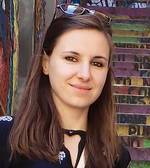
The winner Juliane Simmchen received the Mario Markus Prize for her scientific work on the biomimetic behavior of artificially produced active matter. The playful nature of the discovery is particularly clear in her publication "Apparent phototaxis enabled by Brownian motion" and is therefore honored.
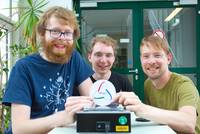
The award-winning team consisting of Dr. Johann Ostmeyer, Christoph Schürmann and Prof. Dr. Carsten Urbach received the Mario Markus Prize for their scientific work on the flight behavior of beer mats. The Society of German Chemists honors outstanding scientific work with a playful character. The winners impressed the jury with their unconventional approach and were honored on December 6, 2022 in Frankfurt am Main.
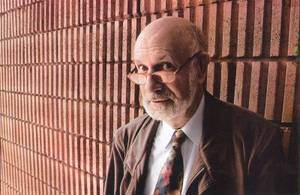
Prof. Dr. Mario Markus is the donor of the award. He grew up as a child of German parents in Chile, where he studied mathematics, biology, chemistry and physics at the Universidad de Chile in Santiago. In 1965, he continued his studies of mathematics and physics in Heidelberg, where he also received his doctorate in 1973. Prof. Markus did research at the Max Planck Institute for Biophysics in Frankfurt am Main in 1974 before he moved to the Max Planck Institute for Nutritional Physiology (now MPI for Molecular Physiology) in Dortmund in 1975 as a research associate in the department of biochemist and biophysicist Benno Hess. In 1988, he habilitated at the University of Dortmund, where he worked first as a Privatdozent and from 1997 as an associate professor. Prof. Markus has led his own research group at the MPI of Molecular Physiology since 1993.
Prof. Dr. Kerstin Kremer, Justus-Liebig-Universität Gießen (Chair)
Prof. Dr. Barbara Albert, University Duisburg-Essen
Prof. Dr. Michael Schreckenberg, University Duisburg-Essen
Dr. Juliane Simmchen, The University of Strathclyde/UK
Prof. Dr. Joachim Stolze, TU Dortmund
Prof. Dr. Mario Markus, Dortmund (Founder)
zuletzt geändert am: 07.05.2025 14:39 Uhr von R.Wieneke